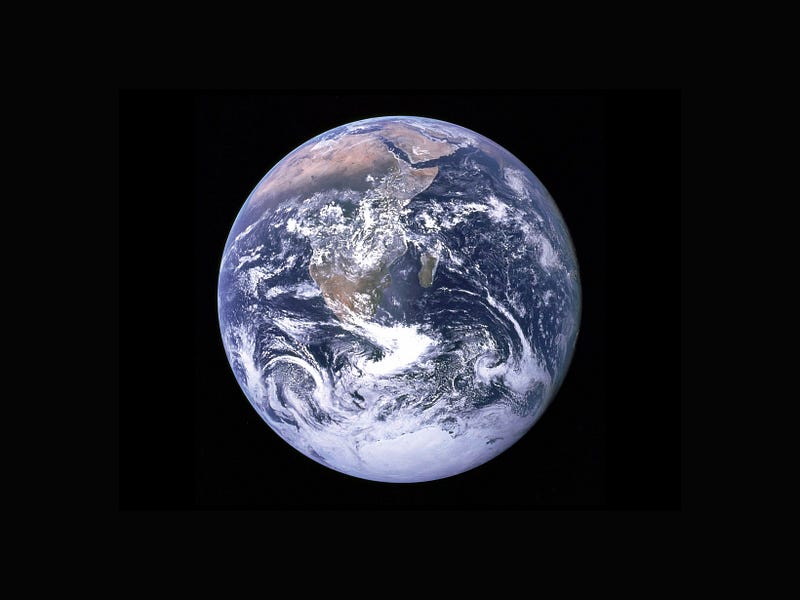Navigating Climate Change: Mitigation, Adaptation, and Extinction
Written on
Chapter 1: Climate Change Responses
This article examines three primary responses to climate change and evaluates which may become the dominant outcome.
Mitigation Strategies
Mitigation encompasses the positive initiatives we hear about, such as targets set by businesses and individuals, and the discussions at the United Nations Conference of Parties (COP). However, these efforts may ultimately be insufficient, arriving too late to avert significant consequences. The fossil fuel sector, alongside certain politicians, has effectively employed strategies reminiscent of those used by the tobacco industry—delaying action through tactics of deception and procrastination. This has resulted in a scenario where we find ourselves needing to implement drastic measures rather than gradual adjustments.

The persistent lobbying by vested interests has often led to the underreporting in United Nations Intergovernmental Panel on Climate Change (IPCC) reports. Consequently, we are now faced with projections of three to four degrees of warming, with the possibility of reaching six degrees. There is no certainty that we can prevent abrupt changes that could trigger a series of interrelated tipping points, leading to uncontrolled global warming.
Deep Adaptation Framework
The concept of deep adaptation is prominently associated with Dr. Jem Bendell, a prominent figure in sustainability leadership. He is the founder of the Institute for Leadership and Sustainability (IFLAS) and the Deep Adaptation Forum. Bendell's 2018 paper, “Deep Adaptation: A Map for Navigating Climate Tragedy,” posits that a movement has emerged, composed of individuals who recognize that societal collapse due to climate change is likely, if not inevitable.
In his view, society often seeks to balance negatives with positives, but this approach may not always be appropriate in the face of impending disaster. For example, discussing minor improvements in safety policies aboard the Titanic as it sank would have been futile. Bendell underscores the importance of acknowledging the grim reality we face while also recognizing positive developments in sustainability.
He emphasizes the urgency of confronting the possibility that it may be too late to avert an environmental disaster during our lifetimes. The evidence suggests that we are headed toward uncontrollable levels of climate change, resulting in widespread starvation, destruction, migration, disease, and conflict.
When contemplating societal collapse, Bendell urges us to recognize its tangible effects on our lives—contingent upon the loss of basic necessities like water and food, leading to malnutrition and insecurity.
Deep Adaptation - Jem Bendell & Toni Spencer - YouTube
This video offers insights into deep adaptation strategies and the urgent need for community action in response to climate change.
Bendell, alongside Gail Bradbrook, advocates for facing the harsh truths of our situation, stressing the necessity of experiencing grief associated with potential collapse. They argue that confronting these feelings empowers us to take action.
The psychological response to climate change is significant. Environmental journalist Alex Steffen noted that presenting dire truths without support can lead to fear rather than action. Michael Mann cautioned against framing the crisis as unsolvable, which can promote feelings of doom.

The Climate Psychology Alliance (CPA) recognizes that climate change is not solely a scientific challenge but a complex issue that evokes fear and denial. Their work focuses on understanding the emotional responses to climate news, emphasizing the need to address feelings of anxiety, guilt, and shame.
The CPA identifies five key principles in their approach to foster constructive responses to climate change:
- Acknowledge our role in the crisis.
- Confront existential shame.
- Balance hope and despair.
- Provide understanding and support.
- Heal repressed emotions.
The CPA also highlights the rise of climate anxiety, especially among youth, and their role in helping individuals process grief while building resilience.
Bendell promotes the idea of creative adaptation, suggesting that societies need to cultivate "radical hope" in the face of climate change. This hope is directed toward a future goodness that transcends current understanding.
Extinction Threat
The concept of imminent extinction is often linked to Guy McPherson, an American ecologist who coined the term “Near-Term Human Extinction” (NTHE), suggesting that humanity may face extinction by 2026. His views, along with those in David Wallace-Wells’ book, “The Uninhabitable Earth,” paint a bleak picture of the future as climate change escalates.
Wallace-Wells' work has been described as a terrifying exploration of climate change's impacts, illustrating the cascading catastrophes awaiting humanity. While acknowledging the potential for an uninhabitable Earth, it is essential to remain hopeful and proactive in preventing such outcomes.

The existential questions surrounding mitigation, deep adaptation, and extinction carry significant implications for human societies. For Gaia, however, the planet will likely adapt to new conditions that are less favorable for human existence while allowing other life forms to persist. The challenge lies in establishing a harmonious relationship with the environment rather than degrading the ecosystems that sustain us.
Deep Adaptation Q&A with Jem Bendell - YouTube
In this video, Dr. Bendell addresses questions about deep adaptation and its relevance in a rapidly changing world.